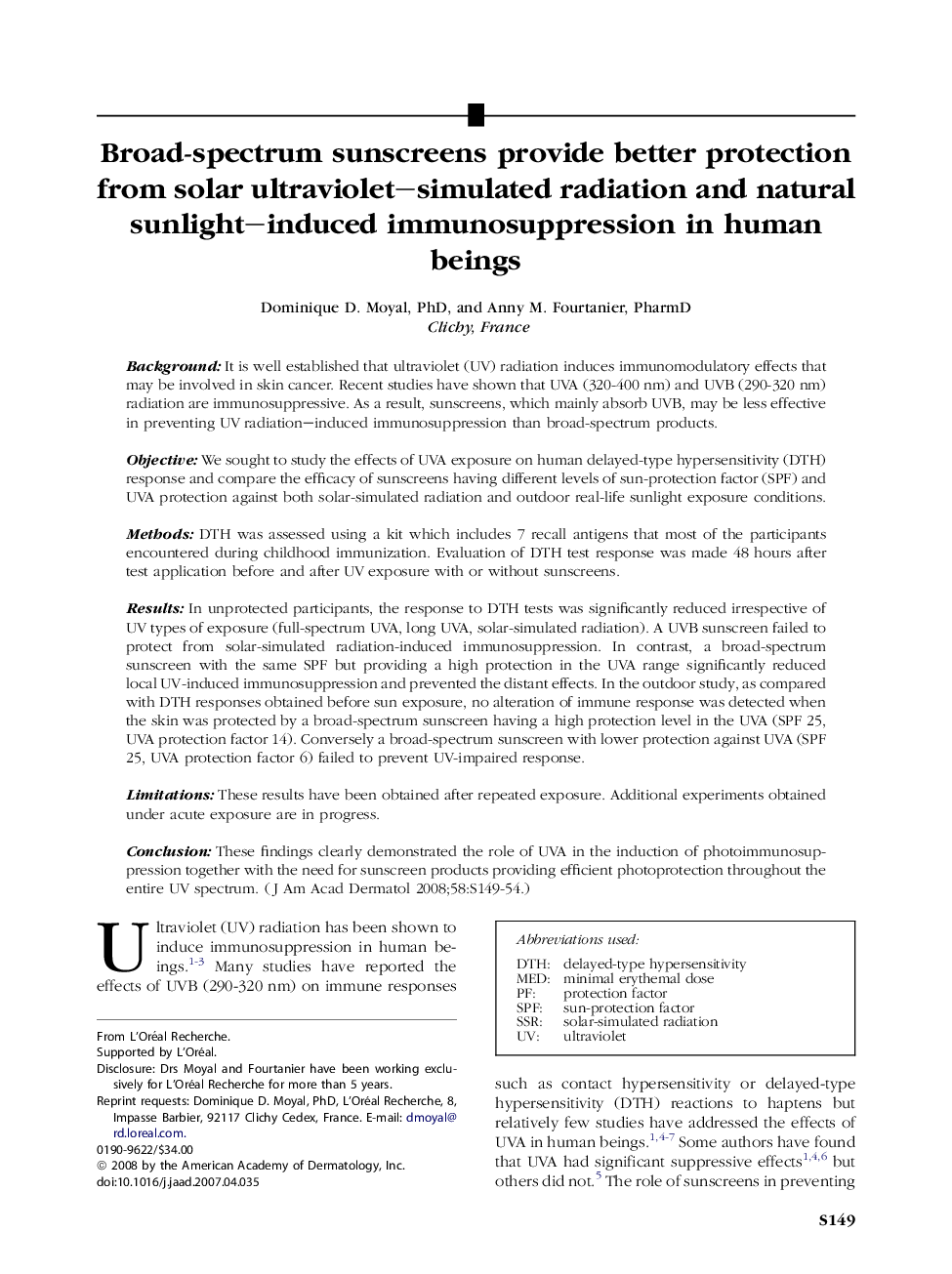| Article ID | Journal | Published Year | Pages | File Type |
|---|---|---|---|---|
| 3210306 | Journal of the American Academy of Dermatology | 2008 | 6 Pages |
BackgroundIt is well established that ultraviolet (UV) radiation induces immunomodulatory effects that may be involved in skin cancer. Recent studies have shown that UVA (320-400 nm) and UVB (290-320 nm) radiation are immunosuppressive. As a result, sunscreens, which mainly absorb UVB, may be less effective in preventing UV radiation–induced immunosuppression than broad-spectrum products.ObjectiveWe sought to study the effects of UVA exposure on human delayed-type hypersensitivity (DTH) response and compare the efficacy of sunscreens having different levels of sun-protection factor (SPF) and UVA protection against both solar-simulated radiation and outdoor real-life sunlight exposure conditions.MethodsDTH was assessed using a kit which includes 7 recall antigens that most of the participants encountered during childhood immunization. Evaluation of DTH test response was made 48 hours after test application before and after UV exposure with or without sunscreens.ResultsIn unprotected participants, the response to DTH tests was significantly reduced irrespective of UV types of exposure (full-spectrum UVA, long UVA, solar-simulated radiation). A UVB sunscreen failed to protect from solar-simulated radiation-induced immunosuppression. In contrast, a broad-spectrum sunscreen with the same SPF but providing a high protection in the UVA range significantly reduced local UV-induced immunosuppression and prevented the distant effects. In the outdoor study, as compared with DTH responses obtained before sun exposure, no alteration of immune response was detected when the skin was protected by a broad-spectrum sunscreen having a high protection level in the UVA (SPF 25, UVA protection factor 14). Conversely a broad-spectrum sunscreen with lower protection against UVA (SPF 25, UVA protection factor 6) failed to prevent UV-impaired response.LimitationsThese results have been obtained after repeated exposure. Additional experiments obtained under acute exposure are in progress.ConclusionThese findings clearly demonstrated the role of UVA in the induction of photoimmunosuppression together with the need for sunscreen products providing efficient photoprotection throughout the entire UV spectrum.
